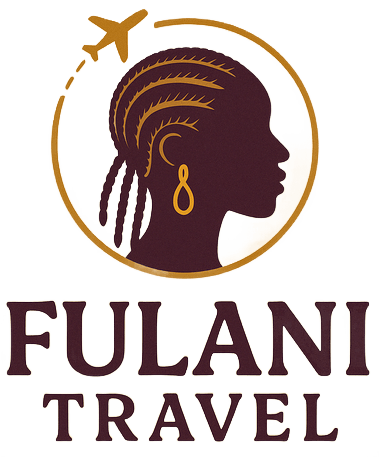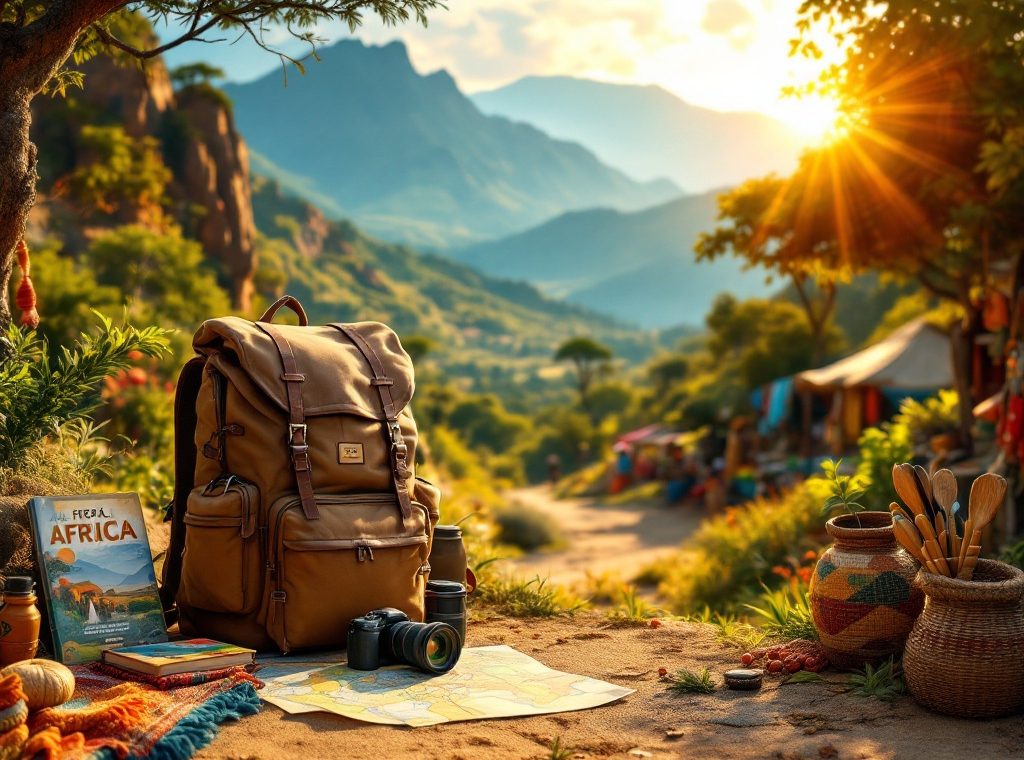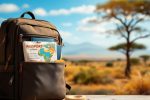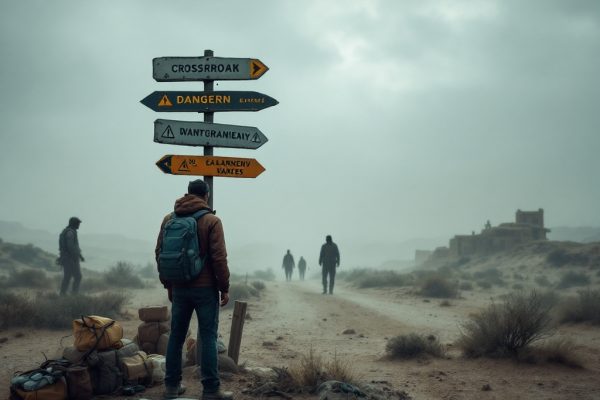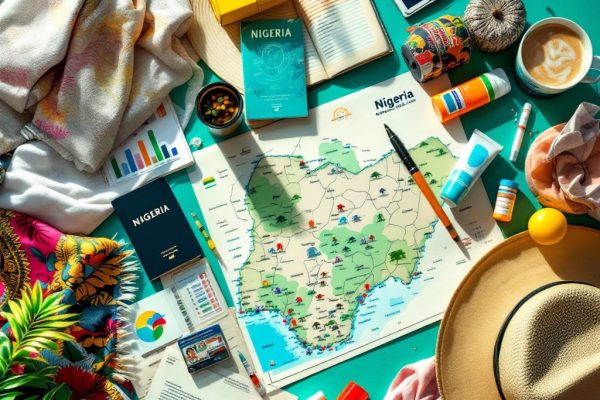What You Need to Travel to Africa: A Checklist for First-Time Visitors
Dreaming of an African adventure? Embark on an unforgettable journey with careful planning. Start your preparations 12-18 months out to secure the best experience. From essential visa and vaccination information to packing tips and safety advice, this guide ensures you’re well-prepared for the trip of a lifetime. Discover how to navigate diverse landscapes, respect local customs, and manage your finances effectively. Start planning your dream African safari today!
Important information

- Start planning your trip 12-18 months in advance, especially for peak seasons, to secure accommodations and tours.
- Consult your doctor at least eight weeks before your trip to discuss necessary vaccinations and malaria prevention.
- Ensure your passport is valid for six months beyond your return date and research visa requirements for each country.
- Pack light, versatile clothing, sturdy shoes, insect repellent, sunscreen, a first-aid kit, and any necessary medications.
- Get travel insurance to cover medical emergencies, evacuations, and trip cancellations.
Travel Preparation for Africa: Essential Considerations
Planning an African safari? Start your preparations 12 to 18 months in advance to create your ideal adventure. Africa’s diverse climates and cultures make early research key to a memorable safari experience.
Planning Your Trip to Africa
Africa’s vastness and diversity warrant multiple trips to fully appreciate its wonders. To avoid crowds and enjoy a more relaxed exploration, consider traveling during the shoulder or off-season.
Understanding Entry Requirements: Passport and Visa
Passport Validity: ensure your passport’s validity extends six months beyond your intended travel dates.
Visa Requirements: research each country’s specific visa regulations, as requirements vary based on nationality and destination. This research will clarify whether you need a visa and the application process involved.
Visa Application: be aware that some countries offer visas upon arrival, while others require applications in advance.
Blank Visa Pages: confirm you have two blank visa pages available in your passport.
Immunizations and Health Precautions
Planning a healthy African adventure? Start your travel health preparations early. Consult your physician at least eight weeks before departure to discuss necessary vaccinations. These may include protection against yellow fever, typhoid, and hepatitis A and B, and possibly rabies. Pack a comprehensive first aid kit with essential medications, antiseptic wipes, bandages, pain relievers, and insect repellent. Research potential health risks specific to your destination, such as malaria, which is prevalent in certain regions. Discuss malaria prevention with your doctor, including antimalarial medication, mosquito nets, and insect repellent.
Consult your physician at least eight weeks prior to your trip to discuss necessary vaccinations, which vary depending on your destination.
Assemble a comprehensive first aid kit containing essential medications, antiseptic wipes, bandages, pain relievers, and insect repellent.
Research potential health risks specific to your destination and discuss preventative measures with your doctor.
Health and Safety Precautions
Safeguarding your trip with travel insurance is essential. It covers medical emergencies, evacuations, and unforeseen cancellations. Before embarking on your journey, consult your doctor about recommended vaccinations and necessary medications, such as malaria pills. Pack crucial health and safety items, including insect repellent, sunscreen, and a first-aid kit. While traveling, remain vigilant and aware of your surroundings to protect yourself from petty theft. Thorough research on your destination’s specific safety concerns is also highly recommended.
Secure travel insurance to cover medical emergencies, evacuations, and unforeseen cancellations.
Consult your doctor about recommended vaccinations and necessary medications, such as malaria pills.
Pack essential health and safety items, including insect repellent, sunscreen, and a first-aid kit.
Stay vigilant and aware of your surroundings to protect yourself from petty theft.
Conduct thorough research on your destination’s specific safety concerns.
Travel Insurance: Why It’s Crucial
Travel insurance is essential for safeguarding yourself against unforeseen problems like medical emergencies, trip cancellations, and lost luggage, which can incur significant costs. A comprehensive policy offers financial security and peace of mind by covering medical expenses, repatriation, and other travel disruptions. For a small daily fee, typically between $2 and $5, you can potentially save thousands of dollars. Consider the financial devastation of a medical emergency abroad—insurance protects you against these expenses. Therefore, before booking flights or accommodations, purchase travel insurance. It’s a smart travel habit that provides valuable protection against the unexpected.
Understanding Malaria and Other Health Risks
Malaria, a serious mosquito-borne illness, poses a significant risk in many African regions. To protect yourself, use insect repellent and take antimalarial medication.
Traveler’s diarrhea, often caused by contaminated food or water, is another health concern. Stick to bottled water and be cautious about consuming local food and its preparation to safeguard your health during your travels.
Safety Tips: Staying Secure in Africa
Traveling in Africa can be an incredible experience. To ensure a safe and healthy trip, take some precautions. Be mindful of your surroundings, especially in secluded areas, and keep your valuables out of sight. Opt for reputable transportation services. Familiarize yourself with local emergency contacts and healthcare options. Consider a guided tour for added safety. When using the internet, a VPN is recommended, particularly on public Wi-Fi networks. It’s also wise to stick to bottled water. Before you go, confirm your health insurance covers international travel, and consider supplemental insurance for medical evacuations. Pack any necessary prescription medications. For the latest health information, check the U.S. Centers for Disease Control and Prevention website.
Safety First: Be mindful of your surroundings, especially in secluded areas, and keep your valuables out of sight.
Reliable Transport: Choose reputable transportation services for safe and reliable travel.
Local Contacts: Familiarize yourself with local emergency contacts and healthcare options before your trip.
Guided Tours: Consider joining a guided tour for an added layer of safety and local expertise.
Internet Security: When using the internet, a VPN is recommended, particularly on public Wi-Fi, to protect your data.
Hydration: It’s wise to stick to bottled water to avoid potential health issues.
Insurance Coverage: Before you go, confirm your health insurance covers international travel and consider supplemental insurance for medical evacuations.
Medications: Pack any necessary prescription medications you require.
Health Information: For the latest health updates and travel advisories, check the U.S. Centers for Disease Control and Prevention website.
Financial Considerations and Money Management
Smart financial planning for travelers involves understanding currency exchange. While credit and debit cards offer convenience, cash is sometimes essential, and its acceptance varies by location. Inform your bank of your travel dates to prevent card blocks. A combination of payment methods offers the greatest flexibility. ATMs are readily accessible in urban areas but less so in rural locations. Familiarize yourself with the local currency and exchange rates for effective budgeting and scam avoidance.
Cash Matters
Cash is often preferred, especially in local markets. Keeping small bills on hand is helpful for tips and minor purchases.
Digital Tools
Budgeting apps can assist in tracking expenses and managing your finances while abroad. Pre-paid travel cards are a secure alternative, allowing you to load multiple currencies and carry money safely.
Exchange Rates
Research the best exchange rates and locations in advance.
ATMs
ATMs are readily available in urban areas, but less so in rural locations.
Currency and Payment Methods
While US dollars are widely accepted across Africa, carrying local currency is also recommended. Dollars are convenient for larger purchases, while local currency simplifies smaller transactions and everyday expenses. Researching exchange rates before your trip can help you maximize your travel budget.
Travel Wallet and Document Safety
Before your trip, ensure your passport’s validity extends at least six months beyond your intended travel dates. Keep a copy of your passport alongside your tickets and visa documents. If required for your destination, pack your yellow fever vaccination certificate. While US dollars might be handy for visa applications, ensure you have local currency for everyday expenses. For convenient access to funds, a debit or credit card is highly recommended. A document wallet will help keep all your important papers organized, while a money belt offers added security for your cash and cards.
Documents and Health
- Passport: Ensure it’s valid for at least six months after your travel dates,
- Copies: Keep copies of your passport, tickets, and visa documents,
- Vaccination Certificate: Pack your yellow fever vaccination certificate if needed.
Money and Security
- Currency: Carry local currency for daily expenses, while US dollars can be helpful for visas,
- Cards: A debit or credit card is recommended for easy access to funds,
- Organization and Safety: Use a document wallet for organization and a money belt for extra security.
Comprehensive Packing List for Africa
Clothing
Pack lightweight, breathable clothing such as cotton or linen shirts, trousers, and skirts. A light jacket or fleece is recommended for cooler evenings. For safaris, choose neutral-colored attire. In certain areas, modest dress is customary and respectful, so consider packing longer skirts or trousers. Durable, comfortable walking shoes are essential, and hiking boots are recommended for trekking.
Health and Hygiene
Sun protection is key, so pack a wide-brimmed hat, sunglasses, sunscreen, and SPF lip balm. Don’t forget insect repellent with DEET. A basic first-aid kit with pain relievers, antiseptic wipes, and bandages is crucial, as well as any personal medications. Hand sanitizer and wet wipes will help maintain hygiene. Travel-sized toiletries are recommended.
Electronics
A universal adapter is essential. A portable or solar panel charger can be invaluable in areas with limited power. Bring your camera along with extra batteries and memory cards. While a local SIM card can provide data and calling capabilities, internet access can be unreliable, so download offline maps and entertainment beforehand.
Luggage
Choose a durable, easy-to-carry rucksack or backpack, perhaps a front-loading or wheeled hybrid option. Packing cubes or compression bags can help organize your belongings and save space. A smaller daypack is handy for excursions. Before any internal flights, check luggage restrictions for weight and size limits.
Essential Clothing: Adapting to Weather and Cultural Norms
Pack light, comfortable clothing suitable for warm days and general travel. Versatility is key, allowing you to mix and match items. In traditional areas, dress modestly in longer garments to respect local customs. Temperatures can fluctuate, so layering is essential. Choose neutral colors that blend with the environment. Sturdy walking shoes are crucial for navigating varied terrain. For sun protection, a wide-brimmed hat and sunglasses are essential. Pack a rain jacket for unexpected showers. For colder months or higher altitudes, add warm layers like a down jacket, thermal underwear, and woolen socks.
Clothing
- Lightweight and comfortable clothes,
- Versatile items for mixing and matching,
- Modest, longer garments for traditional areas,
- Layers for fluctuating temperatures,
- Neutral colors to blend with the surroundings.
Essentials
- Sturdy walking shoes for varied terrain,
- Wide-brimmed hat and sunglasses for sun protection,
- Rain jacket for unexpected showers,
- Warm layers (down jacket, thermal underwear, woolen socks) for colder climates.
Toiletries and Personal Care: Health & Hygiene Essentials
When preparing your toiletry bag, pack travel-sized essentials like soap, shampoo, conditioner, a toothbrush, and biodegradable wet wipes. Don’t forget crucial items such as sunscreen and insect repellent, which can be difficult to find locally. A basic first-aid kit and any personal medications, including prescriptions and over-the-counter pain relievers, are also essential. Consider adding electrolyte packets and, if needed, contact lens solution and sanitary products.
Electronics and Connectivity: Staying Connected
Remember to bring an unlocked phone for communication and internet access.
Pack a camera with extra batteries and a memory card to capture all your photos.
Organizing Your Luggage: Packing Tips and Tools
Packing cubes are a fantastic way to organize luggage, keeping everything neat and tidy. For your main bag, a sturdy rucksack is a practical and durable choice.
Transportation and Travel Logistics
Traveling within Africa offers diverse transportation options depending on your destination and region. For short trips, minibuses, known as “bush taxis,” are a common choice. Larger buses serve longer routes between major cities. Trains offer scenic journeys, but availability is limited. For significant distances or remote areas, domestic flights are practical. Renting a car provides independence, but road conditions can be challenging. For more comfort, hire a private driver or join an organized tour. Ferries are also available for travel across lakes and rivers.
Transportation Options: Navigating African Roads
Traveling in Africa offers a variety of transportation options to suit your needs. Public transportation is readily available for budget-friendly travel. For a more comfortable and private experience, taxis are a convenient choice. If you prefer to explore at your own pace, consider renting a car. Ride-sharing apps are also becoming increasingly popular, but it’s always a good idea to check their availability in your specific destination beforehand. If you plan to drive yourself, be sure to research road conditions and familiarize yourself with local driving laws before you hit the road.
Embracing African Culture and Experiences
Enrich your travels by immersing yourself in local customs and traditions. Exploring diverse cultures adds depth to any journey, and Africa offers particularly unique adventures. Imagine camping under a star-studded African sky, exploring vast savannahs teeming with wildlife, and creating memories to last a lifetime. Stepping outside your comfort zone can be transformative, fostering personal growth and unforgettable stories. For a more affordable and less crowded experience, consider traveling during the mid or off-season. Booking accommodations and experiences 12 to 18 months in advance is also recommended. Don’t forget to bring your family along, as shared adventures create lasting bonds.
Tips for an Enriching Travel Experience
- Immerse yourself in local customs and traditions.
- Explore diverse cultures to add depth to your journey.
- Step outside your comfort zone to foster personal growth.
Planning Your African Adventure
- Camp under the African sky.
- Explore the vast savannahs and wildlife.
- Create lasting memories with loved ones.
Budget-Friendly Travel Tips
For a more affordable and less crowded experience, consider traveling during the mid or off-season.
Booking Recommendations
Booking accommodations and experiences 12 to 18 months in advance is recommended.
Respecting Local Customs and Traditions
Show respect through appropriate attire and by observing local customs. For example, use your right hand for greetings and giving or receiving items. In certain areas, especially remote villages or shrines, it is customary to meet the local elder, and a small gift such as local schnapps is a thoughtful gesture.
Planning for Unique African Experiences
Enrich your journey with vibrant local festivals, thrilling wildlife safaris, and insightful cultural tours. Explore bustling markets, savor the flavors of a cooking class, or learn the artistry of a traditional craft. These immersive experiences offer a profound connection to Africa’s diverse landscapes and rich cultures. Discover something extraordinary and witness the continent’s captivating tapestry.
